Just In
- 11 hrs ago

- 12 hrs ago

- 15 hrs ago

- 15 hrs ago

Don't Miss
- Finance
 Bajaj Group Stock Declares Rs. 60/Share Dividend: Buy Ahead of Record Date On 28 June?
Bajaj Group Stock Declares Rs. 60/Share Dividend: Buy Ahead of Record Date On 28 June? - Sports
 Pakistan vs New Zealand: Ben Sears, William O'Rourke Star In NZ Win in 4th T20I; Kiwis Take 2-1 Lead
Pakistan vs New Zealand: Ben Sears, William O'Rourke Star In NZ Win in 4th T20I; Kiwis Take 2-1 Lead - Movies
 TRP Report Week 16: Anupamaa, Jhanak BEAT Yeh Rishta Kya Kehlata Hai, Ghum Hai. Top 10 Shows List
TRP Report Week 16: Anupamaa, Jhanak BEAT Yeh Rishta Kya Kehlata Hai, Ghum Hai. Top 10 Shows List - News
 MEA Dismisses US Human Rights Report On Manipur As 'Biased And Misinformed'
MEA Dismisses US Human Rights Report On Manipur As 'Biased And Misinformed' - Automobiles
 Royal Enfield Unveils Revolutionary Rentals & Tours Service: Check Out All Details Here
Royal Enfield Unveils Revolutionary Rentals & Tours Service: Check Out All Details Here - Technology
 Elon Musk’s X Is Launching a TV App Similar to YouTube for Watching Videos
Elon Musk’s X Is Launching a TV App Similar to YouTube for Watching Videos - Education
 AICTE introduces career portal for 3 million students, offering fully-sponsored trip to Silicon Valley
AICTE introduces career portal for 3 million students, offering fully-sponsored trip to Silicon Valley - Travel
 Escape to Kalimpong, Gangtok, and Darjeeling with IRCTC's Tour Package; Check Itinerary
Escape to Kalimpong, Gangtok, and Darjeeling with IRCTC's Tour Package; Check Itinerary
Healthy Food Trends To Consider In 2020
With each passing year, we are introduced to many new things in all scape of life. And it is no different in the aspects of food as well. 2019 introduced us to a lot of new and different options, with some amazing foods such as Tahini desserts and we saw cabbage moving up the food scale, from being forgotten to an ingredient in everything (cabbage crust pizzas are real).
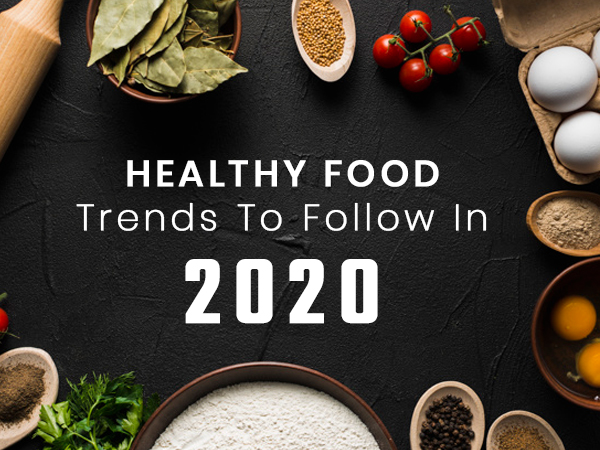
Meat-like, plant-based burgers are one amongst the amazing and healthy foods we were blessed with the past year. Today, we will take a look at some of the healthiest foods trends that were introduced in 2019 and is set to become more than a trend in the new decade.

1. Coconut Flour
Coconut flour is a healthy way to add the tasty coconut flavour to your foods - especially baked goods. It is packed with 5 grams of fibre per 2 tablespoons (with only 2 grams of total and saturated fat) and most importantly, it is gluten-free. Studies have pointed out that the flour is beneficial for people with diabetes, as adding coconut flour to baked goods lowers the glycemic index.
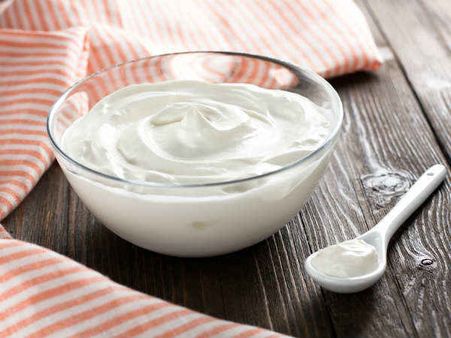
2. Skyr
The traditional yoghurt of Iceland, Skyr is similar to Greek Yoghurt in nutrition and texture. In addition to that, this delicious food is low in calories and high in protein.
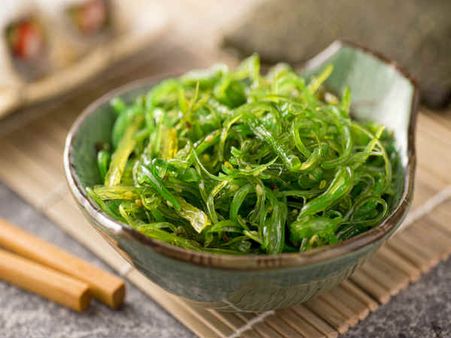
3. Seaweed
2019 witnessed the ultimate growth of seaweed from that of a food of the few to a common cuisine. The nutrient-packed foods are served everywhere, from restaurants to school lunches in the United States. A good source of potassium and iron-and boasts loads of iodine, seaweeds are beneficial in the regulation of the thyroid gland.
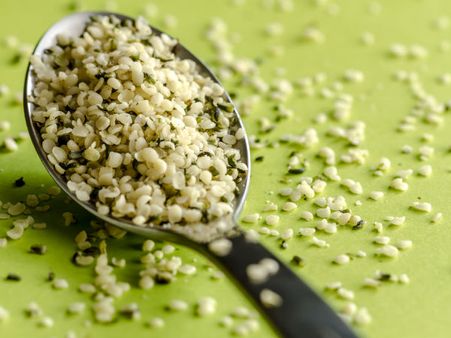
4. Hemp
Although hemp was already available in the market, last year, it made it to the headlines. It is similar in taste too, sunflower seeds and can be eaten raw, toasted, sprinkled on yoghurt or salads or ground into seed butter. A single teaspoon of hemp seeds has 16 per cent of your daily value for phosphorus and magnesium, 1 gram of ALA (Alpha-lipoic acid) and a little under 1 gram of fibre.

5. Almond Milk
Plant-based milks are IN! Out of the various varieties of plant-based milks available, almond milk is naturally high in calcium and deliver fewer calories than cow's milk. As studies point out, one cup of almond milk also has 2.5 to 4.5 g fat, 0 to 0.5 g saturated fat, 5 to 11 g carbohydrate, 0 to 4 g fibre, 20 to 30 per cent of your daily recommendation for calcium and up to 25 per cent of your daily needs for vitamin D.

6. Cauliflower Pizza
According to reports, cauliflower pizza was the most ordered food of the year. This indicates the demise of white flour which is being taken over by cauliflower flour, chickpea flour and almond flour to sorghum flour and so on. The abundance of health benefits, as well as the number of nutrients in these flours, have secured it a place in the list of healthy food items that are here to stay.
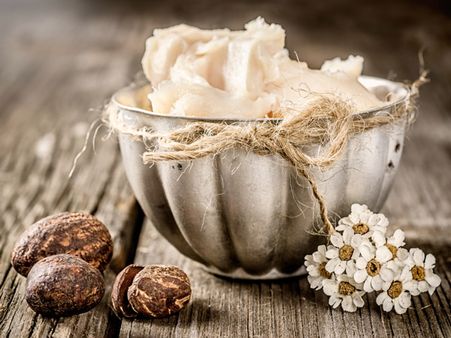
7. Plant-based Butters
Dairy butter and ghee are no longer the favourites. Plant-based butter or vegan butter, unlike margarine which is a combination of vegetable oils and whey, are vegan and contain no trans fats. Most kinds of butter are made with organic coconut oil and cashew cream that's fermented with live cultures, which are not only good for your health but also the environment (think climate crisis).
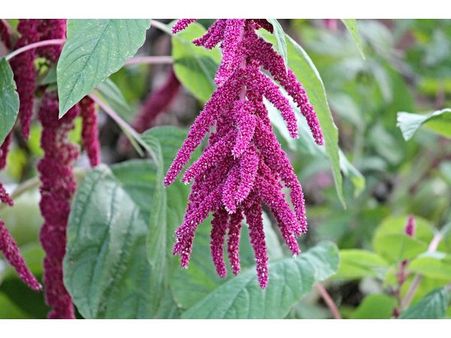
8. Amaranth
Initially viewed as nothing more than an ornamental plant, amaranth is rich in calcium and magnesium-and is gluten-free. It is high in both iron and zinc, as well as protein - making it a dream come true for any vegan. When cooked, amaranth has a thick, porridge-like texture which is great in soups, stews, breakfast porridge or puddings.

9. Rooibos tea
Commonly known as African red tea, this type of tea has taken the food trends by storm. The red tea is a caffeine-free alternative to black and green tea and many suggest that its antioxidants can help protect against cancer, heart disease and stroke. Rooibos tea is made from the leaves of a shrub called Aspalathus linearis, which are also available in the form of green rooibos tea, which isn't fermented, is also available in the market and much more expensive and has a grassy flavour.

10. Kefir
Kefir, also known as kephir is a fermented drink which is made using 'starter grains'. The grains used to make the fermented beverage can be reused, and has to be stored in a cool place so as to avoid being spoilt. The probiotic-rich beverage has a slightly sour taste with a little bit of a fizz and has been proven to aid balance the 'inner ecosystem' within your body, through the supply of essential minerals, complete protein and valuable B vitamins.
-
 healthThe Dengue Diet: What To Eat And What To Avoid
healthThe Dengue Diet: What To Eat And What To Avoid -
 nutritionHealthy Foods From North East India You Should Definitely Try!
nutritionHealthy Foods From North East India You Should Definitely Try! -
 nutritionFive Leafy Vegetables That Are A Must Add To Your Diet, Esp If You Are Over 30
nutritionFive Leafy Vegetables That Are A Must Add To Your Diet, Esp If You Are Over 30 -
 nutritionMonsoon Diet 101: Foods To Boost Immunity, Foods To Avoid & Ayurveda Tips To Stay Healthy During The Monsoons
nutritionMonsoon Diet 101: Foods To Boost Immunity, Foods To Avoid & Ayurveda Tips To Stay Healthy During The Monsoons -
 wellnessFoods That Must Not Be Mixed With Honey, Milk & Other Wrong Food Combinations
wellnessFoods That Must Not Be Mixed With Honey, Milk & Other Wrong Food Combinations -
 wellness13 Healthy Foods That Help Control Hunger Pangs
wellness13 Healthy Foods That Help Control Hunger Pangs -
 diet fitness14 Amazing Foods For Healthy Weight Gain
diet fitness14 Amazing Foods For Healthy Weight Gain -
 nutrition10 Shocking Healthy Food Myths You Didn't Know
nutrition10 Shocking Healthy Food Myths You Didn't Know -
 diet fitnessDeepika Padukone Reveals 10 Diet And Workout Tips For Her Look In Padmavat
diet fitnessDeepika Padukone Reveals 10 Diet And Workout Tips For Her Look In Padmavat -
 recipesRaw Banana And Buckwheat Galettes With Sesame And Lemon Dip Recipe
recipesRaw Banana And Buckwheat Galettes With Sesame And Lemon Dip Recipe -
 recipesKala Chana Fruit Salad Recipe: How To Make Black Chana Fruit Salad At Home
recipesKala Chana Fruit Salad Recipe: How To Make Black Chana Fruit Salad At Home -
 recipesBeetroot And Mascarpone Salad Recipe: Beet Salad With Mascarpone
recipesBeetroot And Mascarpone Salad Recipe: Beet Salad With Mascarpone


 Click it and Unblock the Notifications
Click it and Unblock the Notifications



